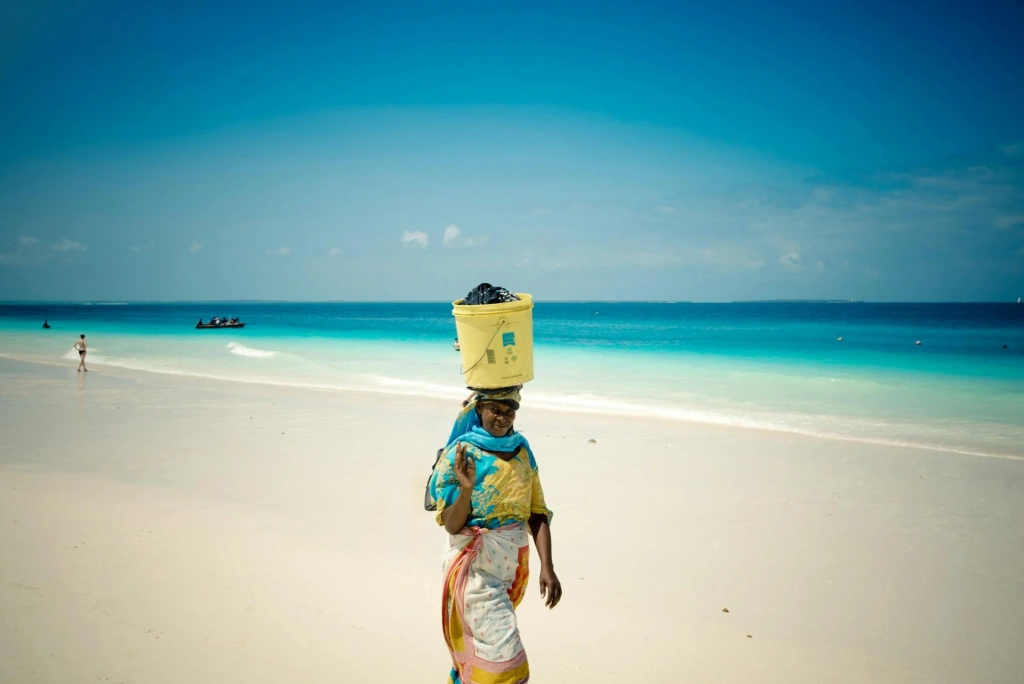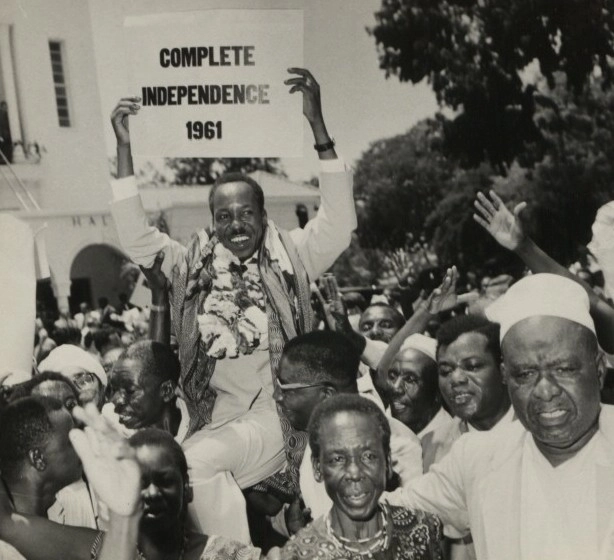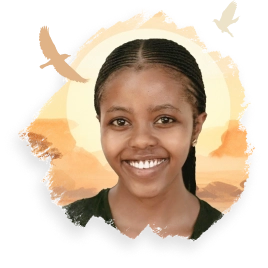In which countries is Swahili spoken? How did an African language become one of the most widespread in the world? What basic Swahili phrases might you need while traveling? Find out in this article by Altezza Travel.
Do you know many languages that originated as a dialect on the edge of a continent, developed over two millennia under the influence of European and Eastern civilizations, became a political symbol of the struggle for freedom and independence, and were eventually recognized internationally? Allow us a brief prologue.
Initially, this article was conceived as a small phrasebook for travelers looking to learn Swahili words and phrases. But when, during its preparation, the browser window became filled with notes from a Harvard professor, UNESCO documents in French, and dozens of academic resources from around the world, it became clear: a simple list with transcriptions wouldn't suffice. So, the Altezza Travel editorial team presents the history, socio-cultural context, and, of course, the most famous and useful words and phrases in Swahili for your journey.
Skip the history of Swahili and go straight to the phrasebook
The Swahili language history: along the coast of East Africa
To avoid confusion, let's clarify: Swahili is also the name of a people from the eponymous region on the East African coast, which includes Zanzibar, mainland Tanzania, Kenya, and Mozambique. The language they speak was once just an obscure island dialect used by local fishermen, farmers, and herders. With the development of trade at the beginning of the first millennium, they established extensive contacts with coastal peoples, and Swahili began to spread along the shoreline. Swahili is primarily influenced by Arabic and indigenous African languages, but it also incorporates words from English, German, and Portuguese.
Gradually, it became a means of communication for everyone who arrived on the coast of East Africa. Immigrants from all over the continent, traders from Asia and the Persian Gulf countries, Indian settlers, and European colonizers adapted it for their purposes, incorporating their own cultural and ethnic elements. Thus, it gained the status of a lingua franca – a common language – with elements of Arabic, Portuguese, Persian, Spanish, English, German, and Hindi.
Swahili people: fighting for independence
A special role in the development of Swahili is attributed to the events of the 20th century. It was then that the language acquired a socio-political context that largely determined its future.
After gaining sovereignty, political leaders began to use and promote Swahili as an important component of history, culture, and even the economy. Under President Julius Nyerere (1962–1978), Tanzania became one of two African states to declare a native language official, the other being Ethiopia with Amharic. To elevate the status and demonstrate the expressiveness of Swahili, Nyerere personally translated two of William Shakespeare's works: Julius Caesar and The Merchant of Venice.
Moreover, Professor Mugane points out that, thanks to Nyerere, the term "Swahili" itself came to symbolize Tanzanian citizenship, intertwining with post-colonial narratives. The working class, forced to live a very modest lifestyle, was held up as the ideal, in contrast to the elite segment of the population that was Western-oriented. Over time, this concept transcended Tanzania's borders, becoming, in a way, the emblem of an entire generation — poor but free and dignified.
The reach of Swahili: a 21st-century overview
Today, it is one of the most widespread languages, not only in Africa: around 200 million people speak it. It has official status in Tanzania and Kenya, is widely used in Uganda, the Democratic Republic of Congo, and the Comoros Islands. To a lesser extent, it's spoken in Burundi, Rwanda, northern Zambia, Malawi, Mozambique, Somalia, South Sudan, and even Oman and Yemen.
Swahili is an official language of the African Union. Considering the population of the member countries of this organization, they could have chosen from about 2,000 languages. Additionally, global media outlets like the BBC, Radio France Internationale, China Radio International, NHK World Radio Japan, UN Radio, and others broadcast news programs in this language.
In November 2021, the United Nations Educational, Scientific and Cultural Organization (UNESCO) declared July 7 as World Kiswahili Language Day. Professor Kennedy Gastorn, Tanzania's Permanent Representative to the UN headquarters in New York, explained the choice of the date: on this day in 1954, the Tanganyika African National Union, led by Julius Nyerere, declared Swahili an important tool in the struggle for independence. And you already know what happened next.
Essential Swahili phrases for travelers. Learn Swahili online.
The most common questions on this topic relate to how to say "hello," "goodbye," "thank you," "please" in Swahili, or how to correctly read and pronounce basic Swahili words. There are two pieces of good news. First, in this language, almost everything is read and pronounced as it's written. Second, we've already compiled all the common Swahili words and phrases you’ll need for your travels.
Although most staff in Tanzania's tourism industry speak English, taking the time to learn some useful Swahili phrases can make your trip even more enjoyable. Most locals understand this widely spoken language and would be delighted to have a chat. If you're looking for quick and easy Swahili translation for your travels, the following list of essential phrases will help you navigate various situations.
Swahili greetings and essential words:
Jambo / Habari – [jahm-boh / ha-bah-ree] – Hello, good day
Kwaheri – [kwah-heh-ree] – Goodbye
Habari za asubuhi – [ha-bah-ree zah ah-soo-boo-hee] – Good morning
Lala salama / Usiku mwema – [lah-lah sah-lah-mah / oo-see-koo mweh-mah] – Good night
Pole – [poh-leh] – I'm sorry (expressing sympathy)
Samahani – [sah-mah-hah-nee] – Excuse me, sorry (when addressing someone)
Ndiyo – [n-dee-oh] – Yes
Hapana – [hah-pah-nah] – No
Asante – [ah-sahn-teh] – Thank you (to one person)
Asanteni – [ah-sahn-teh-nee] – Thank you (to several people)
Mbaya – [m-bah-yah] – Bad
Nzuri – [n-zoo-ree] – Good
Karibu – [kah-ree-boo] – You're welcome (response to thanks)
Places:
Soko – [soh-koh] – Market
Duka – [doo-kah] – Shop
Hospitali – [hoh-spee-tah-lee] – Hospital
Nyumba – [nyoom-bah] – House
Hoteli – [hoh-teh-lee] – Hotel
Uwanja wa ndege – [oo-wahn-jah wah n-deh-geh] – Airport
Stesheni – [steh-sheh-nee] – Station
Benki – [behn-kee] – Bank
Safari – [sah-fah-ree] – Journey, trip
Animals:
Tembo – [tehm-boh] – Elephant
Nyati – [nyah-tee] – Buffalo
Kifaru – [kee-fah-roo] – Rhinoceros
Simba – [seem-bah] – Lion
Chui – [choo-ee] – Leopard
Swala – [swah-lah] – Gazelle
Kiboko – [kee-boh-koh] – Hippopotamus
Duma – [doo-mah] – Cheetah
Twiga – [twee-gah] – Giraffe
Punda milia – [poon-dah mee-lee-ah] – Zebra
Transport:
Gari – [gah-ree] – Car, vehicle
Pikipiki – [pee-kee-pee-kee] – Motorcycle
Boti – [boh-tee] – Boat
Treni – [treh-nee] – Train
Ndege – [n-deh-geh] – Airplane
Basi – [bah-see] – Bus
Teksi – [tehk-see] – Taxi
Pole pole – [poh-leh poh-leh] – Slowly, don't rush
Haraka haraka – [hah-rah-kah hah-rah-kah] – Quickly, hurry up
Directions:
Mbele – [m-beh-leh] – Ahead, in front
Nyuma – [nyoo-mah] – Behind
Kulia – [koo-lee-ah] – Right
Kushoto – [koo-shoh-toh] – Left
Kaskazini – [kahs-kah-zee-nee] – North
Kusini – [koo-see-nee] – South
Mashariki – [mah-shah-ree-kee] – East
Magharibi – [mah-ghah-ree-bee] – West
At the hotel:
Kiyoyozi – [kee-yoh-yoh-zee] – Air conditioner
Taulo – [tah-oo-loh] – Towel
Mtandao – [m-tahn-dah-oh] – Internet
Chakula cha asubuhi – [chah-koo-lah chah ah-soo-boo-hee] – Breakfast
Chakula cha mchana – [chah-koo-lah chah m-chah-nah] – Lunch
Chakula cha jioni – [chah-koo-lah chah jee-oh-nee] – Dinner
In the restaurant/shop:
Maji – [mah-jee] – Water
Chakula – [chah-koo-lah] – Food
Mkate – [m-kah-teh] – Bread
Nyama – [nyah-mah] – Meat
Samaki – [sah-mah-kee] – Fish
Kuku – [koo-koo] – Chicken
Wali – [wah-lee] – Rice
Kinywaji – [kee-nywah-jee] – Drink
Barafu – [bah-rah-foo] – Ice
Kahawa – [kah-hah-wah] – Coffee
Chai – [chai] – Tea
Maziwa – [mah-zee-wah] – Milk
Chumvi – [choom-vee] – Salt
Pilipili – [pee-lee-pee-lee] – Pepper
Sukari – [soo-kah-ree] – Sugar
Jibini – [jee-bee-nee] – Cheese
Fruits and vegetables:
Mboga – [m-boh-gah] – Vegetables
Matunda – [mah-toon-dah] – Fruits
Parachichi – [pah-rah-chee-chee] – Avocado
Embe – [ehm-beh] – Mango
Nanasi – [nah-nah-see] – Pineapple
Chungwa – [choong-wah] – Orange
Ndizi – [n-dee-zee] – Banana
Tikiti maji – [tee-kee-tee mah-jee] – Watermelon
Karoti – [kah-roh-tee] – Carrot
Nyanya – [nyah-nyah] – Tomato
Tango – [tahn-goh] – Cucumber
Kitunguu – [kee-toon-goo] – Onion
Kiazi – [kee-ah-zee] – Potato
Finance:
Pesa – [peh-sah] – Money
Kadi ya benki – [kah-dee yah behn-kee] – Debit card
Bili – [bee-lee] – Bill
Bei – [beh-ee] – Price
Rahisi – [rah-hee-see] – Cheap
Ghali – [ghah-lee] – Expensive
Questions:
Nini – [nee-nee] – What?
Nani – [nah-nee] – Who?
Kwa nini – [kwah nee-nee] – Why?
Wapi – [wah-pee] – Where?
Lini – [lee-nee] – When?
Ngapi – [ngah-pee] – How many? How much?
Gani – [gah-nee] – Which? What kind?
Basic Swahili phrases:
Mimi ni... – [mee-mee nee] – My name is...
Ninafuraha kukutana nawe – [nee-nah-foo-rah-hah koo-koo-tah-nah nah-weh] – Nice to meet you
Habari gani? – [ha-bah-ree gah-nee] – How are you?
Bei gani? – [beh-ee gah-nee] – How much does it cost?
Iko wapi...? – [ee-koh wah-pee] – Where is...?
Ninatoka nchi ya... – [nee-nah-toh-kah n-chee yah] – I am from...
Sifahamu / Sielewi – [see-fah-hah-moo / see-eh-leh-wee] – I don't understand
Siongei Kiswahili – [see-ohn-geh-ee kee-swah-hee-lee] – I don't speak Swahili
Rudia tena – [roo-dee-ah teh-nah] – Can you repeat?
Unaweza kunisaidia? – [oo-nah-weh-zah koo-nee-sah-ee-dee-ah] – Can you help me?
Maisha marefu – [mah-ee-shah mah-reh-foo] – A toast to "long life"
Hakuna matata / Hamna shida – [hah-koo-nah mah-tah-tah / hahm-nah shee-dah] – No problem or no worries (famous Swahili word from The Lion King)
Shida kidogo – [shee-dah kee-doh-goh] – Small problem (often used even when the problem isn't small)
All content on Altezza Travel is created with expert insights and thorough research, in line with our Editorial Policy.
Want to know more about Tanzania adventures?
Get in touch with our team! We've explored all the top destinations across Tanzania. Our Kilimanjaro-based adventure consultants are ready to share tips and help you plan your unforgettable journey.

















